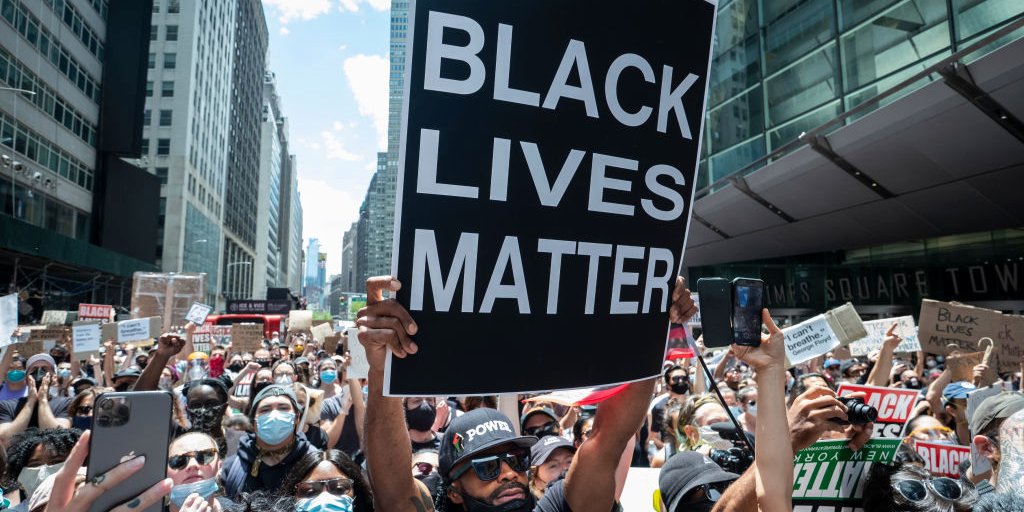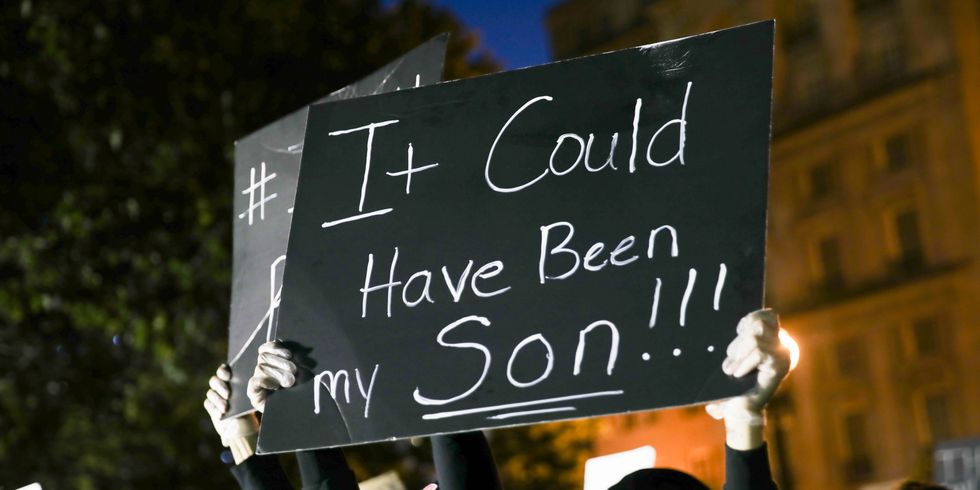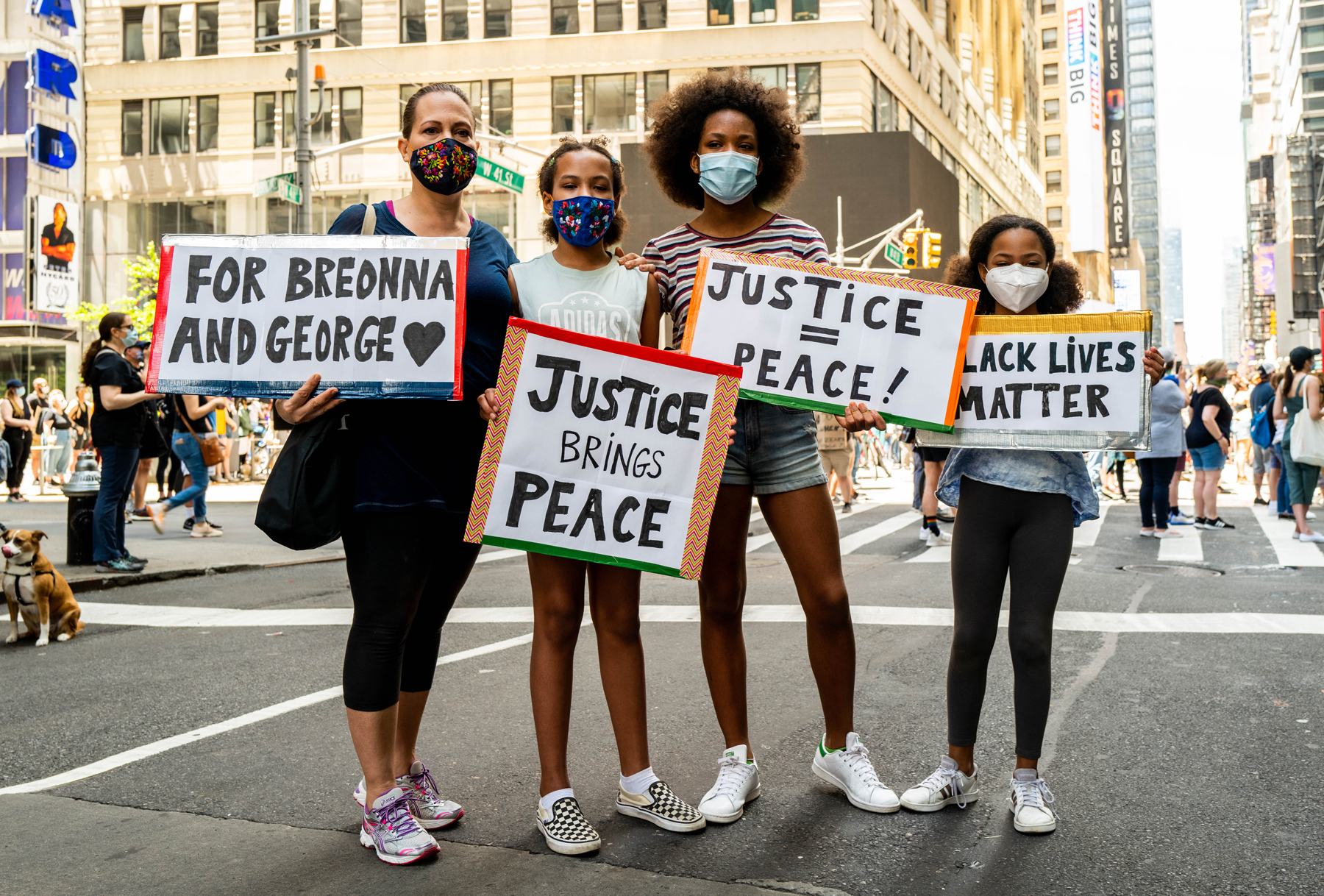What Does ‘Black Lives Matter’ Mean to You?

An old acquaintance from church, a little younger than my dad, so near-boomer, reached out to me tonight on Facebook to discuss Black Lives Matter. Apparently he took issue with a comment I had posted to a mutual’s thread and wanted to register his disagreement with me over DM. He’s a white man who has unfortunately latched onto a lot of the misinformation and conserva-ganda that circulates about the movement. He writes:
“I wanted to message you privately. I dont want to start a big thing. From everything I have seen, there are leaders that raise money from corporations and individuals and gave stated goals as an organization. Defund police, tearing down statues and promoting violence when necessary. They are also funding the Democratic party through a pac. I can gather a little of the information I have seen and send to you. I watched Patrisse Cullors state her leadership is quote, “Marxist trained.” Their ideology is very flawed.”
Oftentimes I’ll ignore these messages, but he seemed sincere enough and at the very least calm and collected and open to hearing a different perspective. So, I gave him mine. Below is what I wrote back, lightly edited for clarity. I decided to share this in case it can help others navigate their own conversations on racial issues.
Regarding Black Lives Matter, I’ve probably seen a lot of the same things you have shared on Facebook and elsewhere. Surely this won’t come as a surprise, but not everything people share on the internet is accurate or grounded in reality. Much of what goes ‘viral’ tends toward the provocative and the inflammatory and is often created for exactly that purpose. The reward for those who share it comes in the form of outsize engagement, but it also feeds the fractious state of our political environment and exacerbates the highly partisan atmosphere in this country. Whether it be from hardline partisans or coordinated trolls working on behalf of foreign actors, a significant chunk of what we see online is put there to mislead you.
This intent to deceive grows more pronounced when something in our society becomes political — for example, whether to wear a mask, whether vaccines are safe and effective, and yes, whether the BLM movement is a cause worth supporting. In each of these cases, we can count on bad-faith actors and ideologues to swoop in and spread misinformation in an effort to bias people in a particular direction. It’s highly effective in most cases because their messaging will inevitably find its way to innocent and relatively uninformed people, who then spread the misinfo to their own receptive social circles, and on it goes. You may have heard the quote “a lie can travel halfway around the world while the truth is still putting on its shoes.”
This being the case, where we get our information from matters. Personally, I prefer to get my information from books, academic journals, and articles written by reputed journalists, with a nod toward those with actual expertise in a matter, as I consider these types of sources more reliable. By contrast, memes, hot takes from narrowly informed friends and random strangers, or heavily edited clips shared to social media are far down the list of what I would (or anyone should) consider reliable and trustworthy.
The link I posted in the thread earlier is a review that I wrote of a scholarly book on the BLM movement. I found the book to be tremendously helpful in outlining the historical context behind the movement, its original purpose and intent, and where it goes from here. If you have time, I recommend reading that review and possibly picking up the book as well if you’re so inclined.
In brief, Black Lives Matter is a grassroots movement with no formal structure. Though it was initially founded in 2013 by three women from the US, the movement has blossomed over the years and now has an international presence. About as close as it gets to a formal structure is when someone starts a local chapter at their university or in their city to band together with other like-minded activists to advocate for social change, but other than that the movement is very loosely organized.
Consistent with any such movement or ideology that’s attained critical mass, the phrase ‘Black Lives Matter’ has proceeded to take on a number of different perspectives, interpretations, and goals. While the aspirations and tactics of those who act under its banner vary, the movement is generally if not universally marked by an acute concern for racial injustice. Those who support BLM and use the slogan do so in an effort to speak out against systemic violence against Black people, most notably at the hands of law enforcement, and other racial inequities pervasive in our society. They’re not all Democrats or liberals, and they’re not all “Marxists”. I personally know a number of conservatives who support BLM, enthusiastically use the slogan in conversation, and proudly display its signage on social media.
And that’s because BLM isn’t just a movement. It’s also a statement of basic solidarity. The phrase ‘Black Lives Matter’ is simply an acknowledgement that Black people are often treated differently in our society, especially by the justice system, compared to white people. It’s a pointed response to a society that seems to disproportionately discard Black bodies as though they don’t matter. It’s looking at the pain and terror and death inflicted on this community by police in America and saying, ‘This is not okay. This needs to stop. I stand with you.’ You don’t have to be Black or a liberal or a Democrat or a socialist or a “Marxist” to understand and affirm this. You merely need to be someone who cares for the plight of people who’ve been put at a structural disadvantage through no fault of their own. There is absolutely nothing about this phrase that should be remotely controversial.
So when you say things like, “their ideology is very flawed,” you’re missing the point that the phrase isn’t associated with or beholden to any single ideology or belief system. It’s okay to disagree with individual people who identify themselves with BLM, but it’s another thing entirely to reject or dismiss the phrase out of hand, as it demonstrates a misunderstanding of what it’s meant to represent. BLM is ultimately about respect and fair treatment for Black people across this country. And if someone can’t understand that, it’s because they’ve chosen not to. They’ve wittingly or unwittingly accepted the misleading rhetoric peddled by partisan hacks and have refused to correct their ignorance despite the profusion of opportunity available to them.
Don’t be that person. Set your politics aside for a moment, and take the time to familiarize yourself with the relevant history. Arm yourself with the facts. Dive into the many resources that have already been prepared for you by those seeking to inform others. As white people who are not subject to the same lived experiences as our Black brothers and sisters, the very least we can do is strive to deepen our understanding and find common ground. I’m not saying you need to go out and buy the T-shirt tomorrow, but I am saying that your attitude towards BLM should be shaped by accurate information and come from a place of genuine empathy.
Further reading and resources:
- Review: The Making of Black Lives Matter
- Review: Between the World and Me
- Anti-racism: What does the phrase ‘Black Lives Matter’ mean?
- 4 Black Lives Matter Myths Debunked | Decoded
- From Donating to Volunteering: Here’s How to Support Black Lives Matter, Protesters and Equality Initiatives
- 16 Books About Race That Every White Person Should Read
- Want To Be an Antiracist? Here’s A Place To Start
- 103 Things White People Can Do for Racial Justice
- Anti-racism resources
- Black Lives Matter resources doc
Feature image credit: Corbis via Getty Images; Copyright: 2020 Ira L. Black




Comments